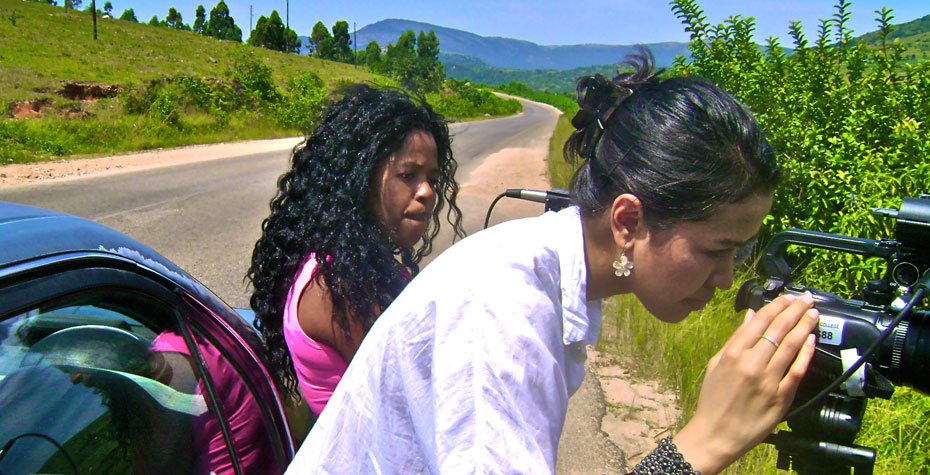Andrea Kine '13 Used Daniels Fellowship to Conduct Field Research in Her Native Swaziland

It’s safe to say that Andrea Kine '13 had an “alternative” Spring Break.
The Wellesley senior was born and raised in Swaziland. “Every time I go home,” she explained, “I try to spend time in the local hospital where I was born.” On a recent trip, she noticed that there were improvements in the hospital. It made her curious as to whether there were similar changes being made across Swaziland.
This curiosity led to her honors thesis in Africana Studies, studying Swaziland’s progress toward meeting the Millenium Development Goals (MDGs) set by the United Nations. In addition to healthcare, Kine was interested in looking at wider trends of how Swaziland is evolving in areas related to women’s empowerment, education, and agriculture.
“Andrea’s work is original and is one of the few studies that examine the impact of the MDGs on women in Africa,” said Filomina Steady, professor of Africana Studies, who advised Kine on her thesis. “In choosing this topic for her research, Andrea is doing what she loves, which is studying development from a gender perspective in Africa, especially in Swaziland.”
Kine received a Pamela Daniels Fellowship in the fall. She used the fellowship funds to travel home to Swaziland to do field research. During Spring Break, Kine set up film interviews with political officials and local leaders, and coordinated several days of filming to focus specifically on women. She is using the footage to create a documentary along with her written thesis.
In her search for interview subjects, Kine found the Swazi Minister of Health on LinkedIn and sent him an email. Minister Benedict Xaba agreed to interview with Kine and offered to introduce her to others. He also invited her to a reception at Lozitha Palace, hosted by His Majesty King Mswati III, to welcome high-level event delegates.
The event, organized by Minister Xaba, marked the 1,000-day countdown to reduce tuberculosis and HIV-related deaths in Swaziland as part of the sixth Millenium Development Goal. The event included a high-profile panel that brought together health leaders from Africa and international agencies, such as the United Nations and the World Health Organization, to launch a fresh offensive against HIV/tuberculosis co-infection.
During her time at the palace, Kine met His Majesty King Mswati III and told him briefly about her research project. “He was very pleased to learn that I was born and raised in Swaziland,” said Kine, “and that I decided to come back to do field research in the Kingdom. I was amazed at how kind, sincere, and humble he was. He was a perfect gentleman in every way, and showed interested in learning of my research.”
Before her trip, Kine relied primarily on books and news articles about development in Swaziland. When she arrived, however, she soon found that many perspectives on Swaziland seemed incomplete. “Swaziland is still lagging behind,” she said, “but it has made significant progress toward the MDGs. We don’t hear much about that in the media.”
One such example of progress is the HIV rate. According to Kine, Swaziland has the highest prevalence of HIV in Africa. Yet now, “97 percent of babies born to HIV-positive women are HIV-free,” she said. “We’re looking at an HIV-free generation.”
After Commencement, Kine hopes to pursue a master's degree in public health, focusing on health policy and looking to gain experience in biostatistics so that she can make a difference in the public sphere in Swaziland and beyond. “This experience made me want to go back home and take part in all that is happening there,” said Kine. “Not to be a spectator but be an active member of my community. It rekindled my passion for my country.”
Watch the trailer for Kine’s upcoming documentary.
—Gabrielle Linnell '13
